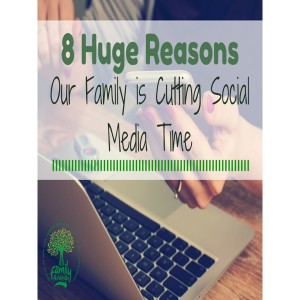Episodes

Friday Feb 01, 2019
When You Really Want to Help, Less is More
Friday Feb 01, 2019
Friday Feb 01, 2019
When your child is melting down, are you quick to go into damage control? Or are helping her settle down and re-group? Active listening is the go-to response to your child's upset. Try to avoid solving her problem, lecturing, or criticizing, as they only increase your emotional distance from her. When you are trying to active listen, most parents use 5 words or less to convey what you think she might be feeling in the moment. The more words you use, the more confusion and distance you might create, despite your best intentions. Remember, when you really want to help, less is more.

Thursday Jan 31, 2019
You will Always Be the Parent
Thursday Jan 31, 2019
Thursday Jan 31, 2019
As our children grow, our parenting needs to change. There are four stages of parenting, depending on your child's age. They will be most receptive and you will be more effective as you parent accordingly. Youngsters require hands-on parenting, as they can't do for themselves. Children require directive parenting, as they test the limits of their abilities. Teens respond best to advice-based parenting, as they find their individual identity. Young adults and our grown children benefit from consultative parenting. As your child struggles, use active listening to settle her down. When you see that emotional fever go down, ask permission before offering help. "I have some thoughts about what's going on, sweetheart. Do you want to hear them?" You will always be their parent.

Tuesday Jan 29, 2019
Let the Christmas Giving Spirit be all Year
Tuesday Jan 29, 2019
Tuesday Jan 29, 2019
Parents who know, understand and respond to their child's needs and feelings are practicing servanthood parenting. That does not mean giving in all the time. Always giving in just promotes your child's sense of entitlement with no accountability. Yet, if you are truly practicing servanthood in your parenting your children, you help them manage stress better, develop emotional intimacy, and speak up for themselves. You are still the boss, and there are still boundaries and accountability, but there are also more teachable moments and a stronger family bond.

Monday Jan 21, 2019
What's Your Child's Sign?
Monday Jan 21, 2019
Monday Jan 21, 2019
We are all born with the IALAC sign. How it evolves over time depends on our life experiences and how we handle them. Your gift to your child is to use active listening and teachable moments to nurture them through difficulties, so that they maintain the IALAC sign they were born with.

Saturday Jan 19, 2019
How You Say It Is Just As Important As What You Say
Saturday Jan 19, 2019
Saturday Jan 19, 2019
Most of the time you and your child get each other. But, when you don't get each other, there's a disconnect. Disconnects usually occur when your verbal and nonverbal behavior don't match up. When your child has an emotional fever, active listen. Verbal, use feeling words. Nonverbal, look at him, get down on his level, lean in, all nonverbal behaviors that tell him you are listening and that he is the most important thing to you in the world at that moment. When your child's verbal and nonverbal don't match up, observe and confess. "Son, you are telling me to go away, but you are crying. I'm confused. I just want to help." If he runs into your arms, you got your answer. If he yells, "I said go away," then leave, for the moment. Follow with, "when you want to talk about it, I want to listen." Both you and your child say things with your actions as well as with your words. How you say something is just as important as what you say.

Thursday Jan 17, 2019
Rules for Electronics in Your Home
Thursday Jan 17, 2019
Thursday Jan 17, 2019
In this age of internet and social media, it's easy for the tail to wag the dog. That is, if you don't have family rules for use of the internet and social media in your home, it could easily get away from you. Mental health professionals are now treating internet and social media addiction. To circumvent such difficulties, start with a family meeting. Kids get an equal say in voicing their feelings and opinions. List the where's and how's that personal electronics are on in your home, and then talk about the impact of these devices on your family time and functioning. Come to agreement on how they can be used without interfering with personal and family function. This podcast concludes with examples of three frequent rules for electronics use in your home.

Tuesday Jan 15, 2019
Have a Problem? Be creative.
Tuesday Jan 15, 2019
Tuesday Jan 15, 2019
As parents, we all have lots going on. When our child has a problem, it's always easier to just solve the problem for him. After all, we are bigger, smarter, more experienced in the world. Just solve it, right? If expedience is your goal, then sure. But do you want expedience with your child? Or, do you want relationship and teachable moments. When Joey shows words and actions that he has an emotional fever, use your active listening to calm his feelings. Then, tell him, "You know, Joey, I have some thoughts about what you are going through. Do you want to hear them?" If Joey declines your offer of help, don't force your solution. Let him choose. If he wants your help, help him think through all the options, evaluate them, and plan a solution. This is relationship-oriented, healthy, creative problem-solving, and a great teachable moment.

Sunday Jan 13, 2019
Making the Most of The Homework Wars
Sunday Jan 13, 2019
Sunday Jan 13, 2019
Unless your child is the one in a million who dives into homework each night with great joy and abandon, you experience the homework wars in your family. You know, they don't have to be awful. While you might active listen your child's reluctance to get started on their homework, doing it is not an option. They may have some say in how they do it, but getting it done each night is the goal. Think about how you can include your child in this problem-solving process, so that there are no casualties from your homework wars.

Friday Jan 11, 2019
How to be when things are going great!
Friday Jan 11, 2019
Friday Jan 11, 2019
Isn't it great when things are going great? No fuss, no muss. Everybody's getting along. Things are getting done. There's a delightful playfulness in the air. Uh oh. What's wrong? Well, how about nothing? You are enjoying the fruits of your parental labor. Your relationships in your family are humming along. Remember, communication is relationship. How to be when things are going great? Be in the moment, Be mindful. Use the time with your family to instruct, to direct, to check in, and to find teachable moments. These things drive healthy parenting and family relationships.

Monday Jan 07, 2019
Stress? What stress!
Monday Jan 07, 2019
Monday Jan 07, 2019
Stress comes in two forms, the bad struff, distress, and the good stuff, eustress. Each form, however, can generate symptoms that take you off task. Who wants to work with sleeplessness, muscle tension, or gastrointestinal upset? While we can't avoid stress altogether, we can do something about both our mindset and our symptoms. Turn your what ifs into I wonders, and adding a positive outcome to your I wonder, changes your mindset from worrying to being curious. Eating right, making time for sleep and physical workout addresses some of the symptoms of stress. Don't let stress shut down your progress. These kinds of stress management strategies keep you on track for creating and using teachable moments.

